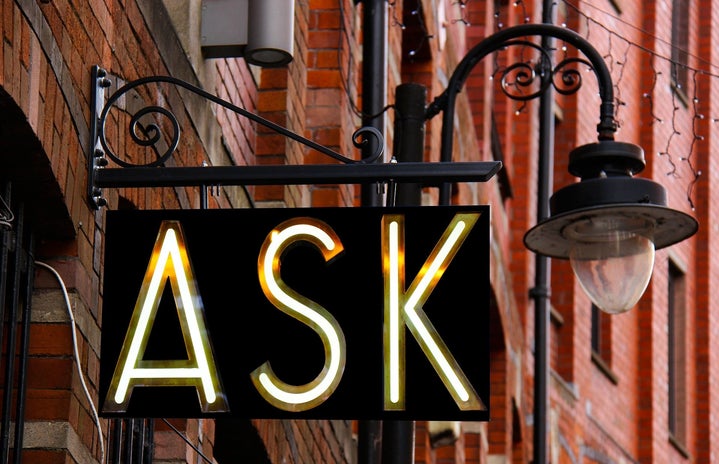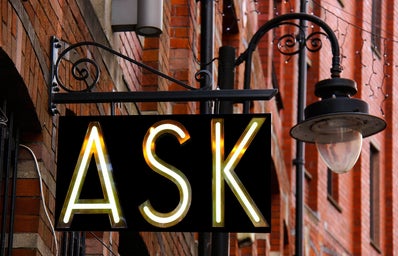I want to make it clear from the beginning that I am not ashamed of my mental illness.
I was in my second year of college when I finally decided to listen to the people around me and see a mental health professional. I felt incredibly overwhelmed by all the questions. How often do you feel depressed? Do you have any thoughts of hurting yourself? Describe how it feels… The questions seemed to have no end. After a while, the doctor looked at me and said, “Well, there’s two strong possibilities here.” What followed were two words I’d never thought I’d have used to describe me: bipolar disorder. The doctor launched into a lengthy explanation and I don’t think I heard half of it because I was thinking, “Oh great, they think I’m *actually* crazy.”
I didn’t know a lot about bipolar disorder, and most of what I knew was from television and the occasional Internet post. A lot of people are talking openly about depression and anxiety, but far fewer talk about bipolar disorder. I am fortunate to be surrounded by friends and family who offer a great support system and helped me find resources to better understand the condition that I thought would derail my life. The more people I talked to and the more experiences I heard, the less alone I felt. There are so many things I wish I had known about bipolar disorder, and I think it’s time for me and others to speak out about our experiences to fight the negative stigma that still shadows our condition.
Bipolar disorder is also called manic depression, and there are four types: Bipolar I, Bipolar II, cyclothymia and a generalized category for those who don’t meet all the criteria for the other forms.1 Bipolar II is typically perceived as “less severe,” but it can be just as debilitating as Bipolar I. According to the National Institute of Mental Health, bipolar disorders are characterized by “clear changes in mood, energy, and activity levels”. They feature periods of often intense depression and elated or agitated states referred to as mania or hypomania. Manic states, or moods of extremely high and often uncontrollable energy, can last for more than a week and occur in those with Bipolar Disorder I. Hypomanic states are most common in Bipolar Disorder II. They are also periods of high energy and elation, but are thought to manifest more in increased productivity and good moods. Clinicians suggest they interfere less with daily life, but many people living with Bipolar Disorder II feel as though their lives are greatly impacted by these fluctuations.
Like any diagnosis, each and every one of us living with it has a different experience. I wanted to give these individuals a chance to share their stories, in the hopes that anyone reading this can better understand what Bipolar Disorder II means in everyday life.
One contributor says:
“I have Bipolar II. Being diagnosed was an answer to this question of ‘Why am I like this?‘: Why I was ‘crazy’… Why I was how I was in relationships… Why I felt great for two weeks and then absolutely awful for two weeks or sometimes more… Why I couldn’t regulate my money… All of it was tied up and finally made sense. It’s still a struggle because I only JUST took a genetic test to tell me what medications work on me. Only six are likely to work for me, and I’ve only had success with two of them. Most of the common medications aren’t on my list, and the medication I’ve been on for almost three years cannot even be processed by my body. I’ve been on an antidepressant that does nothing even at the highest dose. My doctor and I are finally finding some medications that seem to work for me.”
This person’s experience with medications echoed a lot of others’ stories. Mental health disorders can be incredibly difficult to treat. Scientists are still trying to find the underlying pathology for a lot of diseases that affect the brain, which means most of our medications today attempt to manage symptoms instead of going after the root cause. Worse, psychiatric medications are not one size fits all. People often try several drugs in order to find one that works for them, and occasionally, medications will stop working after a person has been on it for a while.
I asked this contributor if there is anything they’d like people to understand about bipolar disorder. This is what they said:
“I guess I just feel like people think the up-down isn’t so bad with Bipolar II, and yeah, it isn’t as bad as Bipolar I, but it still takes a toll. Mania isn’t a cake walk, at least for me. Yes, I get a TON done, and I have more energy. I often start diets or workout regimes when I’m manic, but I also stutter, can’t get my thoughts together to form coherent sentences or catch my breath. I’m more likely to have anxiety and far more likely to get incredibly frustrated.
This has destroyed relationships— my libido is through the roof. I literally dated someone in my early twenties that called me a nymphomaniac because of it. They said I was crazy and they ‘just weren’t into it.’ I broke up with a different partner because I was feeling impulsive and thought they were cheating on me.
My impulse control sucks during mania, and it sucks. These behaviors are compulsive. So, I sometimes sequester myself away during both mania or depression and just… ignore the world so I don’t do something I regret.
I also now know when the down period is coming where I’ll be depressed and hopeless and lacking energy for two or more weeks.”
This experience resonates with my own and several others’. It is nice to have the boost in productivity and energy, but it comes at a price. Another contributor described feeling “out of control” when they are in a manic phase. They continued, “I can’t stop talking, even though I want to. I make erratic decisions and I know that I’m not behaving normally. I cry easily, even when I’m not sad. I don’t feel like I need to sleep and I can be super irritable. The worst part is that I know that the energy will be gone in a few days and everything will be absolutely awful for weeks.”
I asked them if there was anything they want people to know or understand about bipolar disorder. They expressed only one sentiment: “We are all doing our best. Whether we’re up or down on any given day, we are trying our best.”
There are some negative stereotypes that circulate about bipolar disorder. People assume that there is some sort of Dr. Jekyll/Mr. Hyde cycling that occurs between mania and depression. Each of the phases of bipolar disorder can last for weeks, although depressions are more likely to last longer. Many people with bipolar disorder experience periods of time that are stable as far as their moods go. Medications attempt to keep their mood as stable as possible. Like other less-understood mental health disorders, there is a common misconception that people with mental health diagnoses are dangerous or violent. There is no evidence that people with bipolar disorder are any more likely to be violent or aggressive than any other population.
Bipolar disorder can be exhausting to navigate, and a lot of people with the disorder are much more successful if they have a strong support system. There are so many ways you can support your friends or loved ones with bipolar disorder. The most important way you can help is to be patient. People with bipolar disorder are often frustrated with themselves. Sometimes we need someone to help us see a way back from wherever we’re stuck. If you made it this far, thank you.
Photos: cover
Sources: 1


